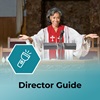Note: This article has been excerpted from Leading Life-Changing Small Groups.
Choosing a curriculum can be an overwhelming task considering the number of options now found in bookstores and online. Here are some tips on choosing one right for your group.
Key Reminders While You're Looking
Curriculum Is a Tool
Curriculum can never lead the group. Don't forfeit opportunities for extended prayer or service, or cut short a necessary community-building activity, because "we have to get through the curriculum." Jesus did not say, "Go therefore into all the world and complete the curriculum!" Your goal is ultimately to make disciples—Christ-followers—who are obedient to Jesus, yielded to the Spirit, and loving toward others.
Curriculum Is Not a Substitute for the Bible
Curriculum and study guides should be used to enhance the group's purpose and move people toward biblical truth. They should point to God's Word, not serve as a substitute.
Don't Feel Obligated to Finish All the Questions
Competent leaders know what questions to use and how many of them to use. If a curriculum has too many questions, choose a few good ones (five to seven questions at most). Many times, two to three good questions followed by the right kind of group discussion are more than enough. Better to have a great discussion while grappling with a few good questions than to answer all the questions at a superficial level. The goal is to engage people with the truth of God's Word as it relates to their own heart and growth.
Make Sure the Curriculum Is Group Friendly
Many small-group studies are designed for understanding the Bible, not building relationships or generating a deep sense of community and caring. Look closely at not only the questions but also the process. Does the curriculum allow for lots of interaction? Does it ask personal disclosure questions that challenge people to open up and share their lives? Or is it filled with content-based "what" questions, often ignoring personal "why" questions?
Look for Engaging Application Questions
An application section that simply asks, "How would this apply to your life?" is weak. Instead, look for an application section that says something like, "It's clear from this passage that we need to share our faith with others. And it is clear that we all know how and that it would please God. But let's talk about why it's so hard for you and me to start spiritual conversations with seekers. Are there fears or other barriers you face in communicating the gospel? How does it feel when you picture yourself talking to an unsaved person about Christ?" These questions will probe people's motives, thoughts, feelings, and needs. Only then can we truly pray for and encourage one another.
Key Questions When Choosing a Curriculum
What Is Our Purpose?
The curriculum should support the purpose of the group. This purpose may change as the group moves through seasons of growth, maturity, and experience. If a group starts as a grief support group for those who have lost loved ones, the curriculum should reflect that purpose. As people move through the stages of grief, a leader may see that the group members need to understand more about God. As a result, a curriculum on the attributes of God may be appropriate.
Where Is the Group Spiritually?
It's wise to take the spiritual pulse of your group to determine the level of curriculum appropriate. If the group is dominated by people investigating the claims of Christ, make sure the questions are appropriate for them. Listen without making rash judgments, don't appear to have all the answers, and deal with the issues facing them as explorers of the faith. Allow them to process information, ask hard questions, and raise objections. Use a Bible version that is easy for them to read and use. The Journey by Zondervan, designed with questions and insights for spiritual seekers, is a great Bible for this kind of group.
Growing believers can handle more difficult Bible discussions and are more willing to tolerate religious jargon. Even so, try to avoid using a lot of religious terminology. While believers who have been around the church longer may feel comfortable with terms like redemption or justification, avoid using them too much with newer Christ-followers unless you expect to spend adequate time explaining what those terms mean.
What Are Our Key Needs?
This question relates to the purpose question but allows a group to address real needs and still accomplish the purpose of the group. For example, couples in a group may desire growth in their marriage relationships. Their group may actually be a serving group designed to meet for 30 minutes prior to serving together for a brief study and discussion about marital issues.
What Is Our Current Focus?
Sometimes we choose a curriculum based on needs but fail to consider the long-range vision for the group. Your group may be completing a study on Christianity in the workplace. Next some in your group want to study the Book of Galatians. Why? How does this fit with the overall group direction for the coming year? Are there elements in Galatians that would be appropriate to focus on, or would it be better to study this book when it makes more sense in the life cycle of the group?
Try to provide a flow unless the situation dictates an abrupt change in focus. For example, let's suppose your group is completing a personal growth curriculum. Next it might be appropriate to identify one of the areas covered in that book and do an extended series or study on it. A section on finances, for instance, could be expanded to deal with using finances in a compassionate way to help the poor. This would be a great step toward casting a vision for serving others and would not appear to be an abrupt curriculum change.
What Are Our Limitations?
Don't waste your time looking at curriculum designed for a two-hour study when your group has only 40 minutes to meet each week. Make sure you have considered the time, location (are you in a distracting environment?), and size of your group (four people can deal with more questions than nine can, assuming you want to allow everyone to participate).
What Is the Best Curriculum?
The curriculum is your servant, not your master. Use it to help people grow. Regularly evaluate and adjust your expectations. Set it aside if it gets in the way. Focus on integrating biblical truths with life development, and you won't be disappointed. Regardless of your approach—Scripture study, topical, or sermon questions—you won't go wrong if you apply truth to life.
—Bill Donahue. This article is excerpted from Leading Life-Changing Small Groups; used with permission from Zondervan. All Rights Reserved.
For more on this topic, try Find the Right Study for Your Group.









